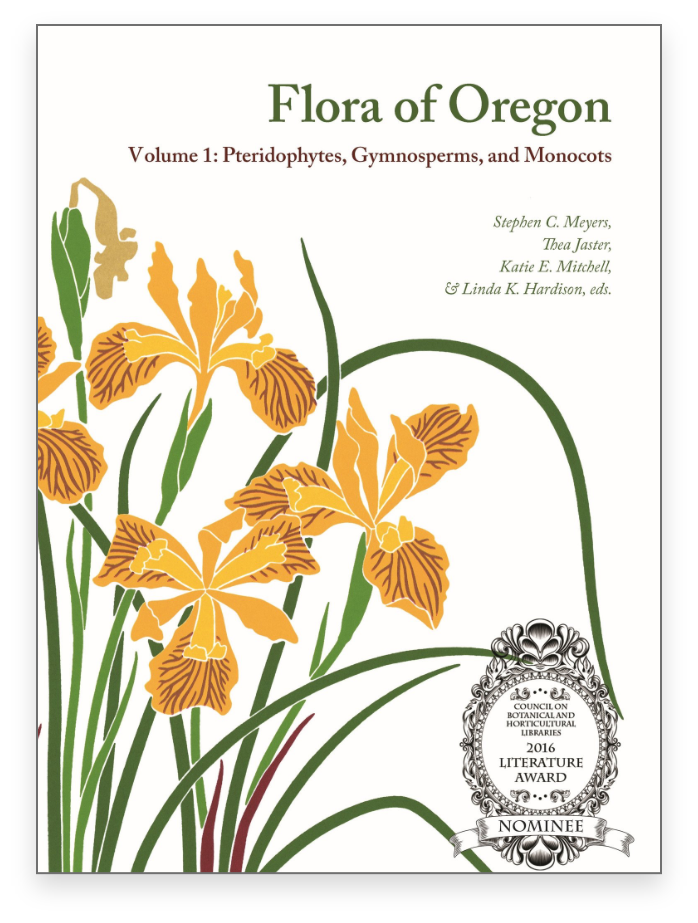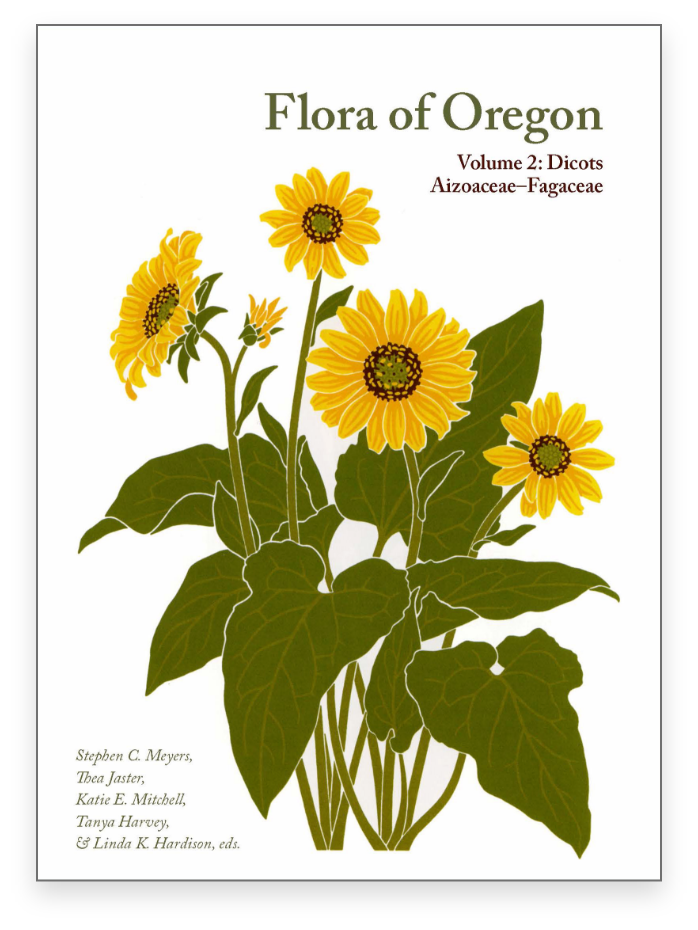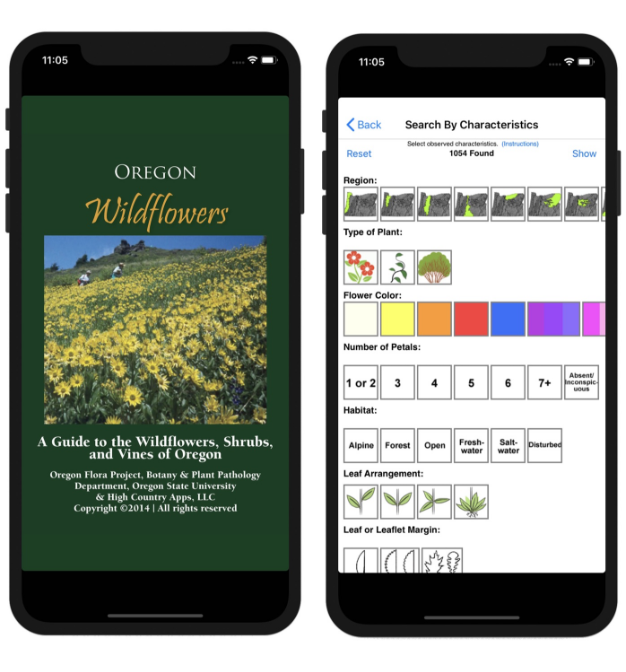Flora of Oregon Volume 1:
Pteridophytes, Gymnosperms, and Monocots
OregonFlora, Oregon State University, and Botanical Research Institute of Texas have collaborated to publish Volume 1 of the Flora of Oregon.
The first comprehensive plant guide for the state in over 50 years, and the first that is illustrated, Volume 1 addresses the ferns, conifers, grasses, sedges, and lilies—1,054 taxa of native and naturalized plants. Plant identification keys, descriptions, and an Oregon map with the distribution for each taxon are provided. Pen and ink illustrations of 521 species are interspersed with the descriptions.
Chapters describe the state’s ecology and predominant plant habitats, 50 of the best places to see wildflowers, and biographical sketches of notable Oregon botanists. Appendices detail taxa restricted to a single ecoregion, endemics, and those not collected in more than 50 years.
The Flora of Oregon is a valuable reference for naturalists, ecologists, historians, and policy-makers and a welcome resource for all who study the biodiversity of Oregon.

Flora of Oregon Volume 2:
Dicots Aizoaceae - Fagaceae
Upholding the unparalleled standards of quality and design established with the first volume, Volume 2 presents 1,668 taxa of Oregon dicots from families Aizoaceae through Fagaceae. Notable groups include the Asteraceae (representing >11% of the state’s flora), the mustard family (Brassicaceae), stonecrops (Crassulaceae), and the legumes (Fabaceae). The richly-illustrated front chapters cover gardening with native plants and plant-insect interactions with a focus on butterflies and pollinators. Appendices list butterfly-foodplant pairs, pollinator specialists and their targeted plants, native garden plants that support insects, and features of native species used for gardening and landscaping.

Oregon Wildflowers App
Capture OregonFlora’s depth of knowledge on your mobile device with this plant identification app. Select from any of a dozen characters you recognize in your unknown plant to identify more than 1,050 common wildflowers, shrubs, and vines found in Oregon and adjacent areas of Washington, Idaho, and northern California. The app provides images, range maps, bloom period, and technical descriptions. Save your favorites, or create and share species lists. The app does not need an Internet connection to run, so you can use it no matter how remote your wanderings take you.
